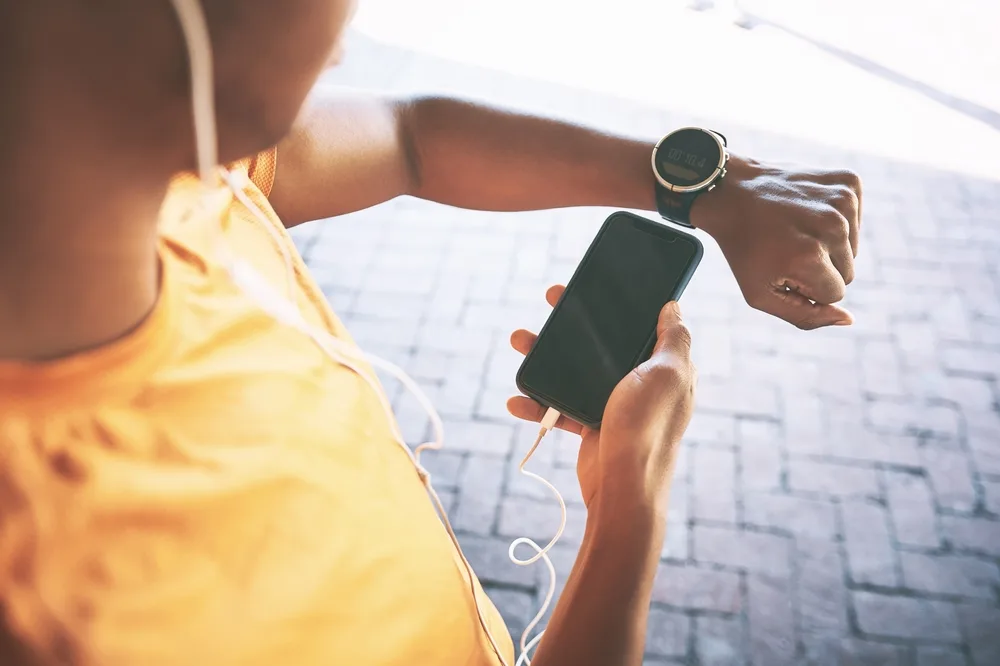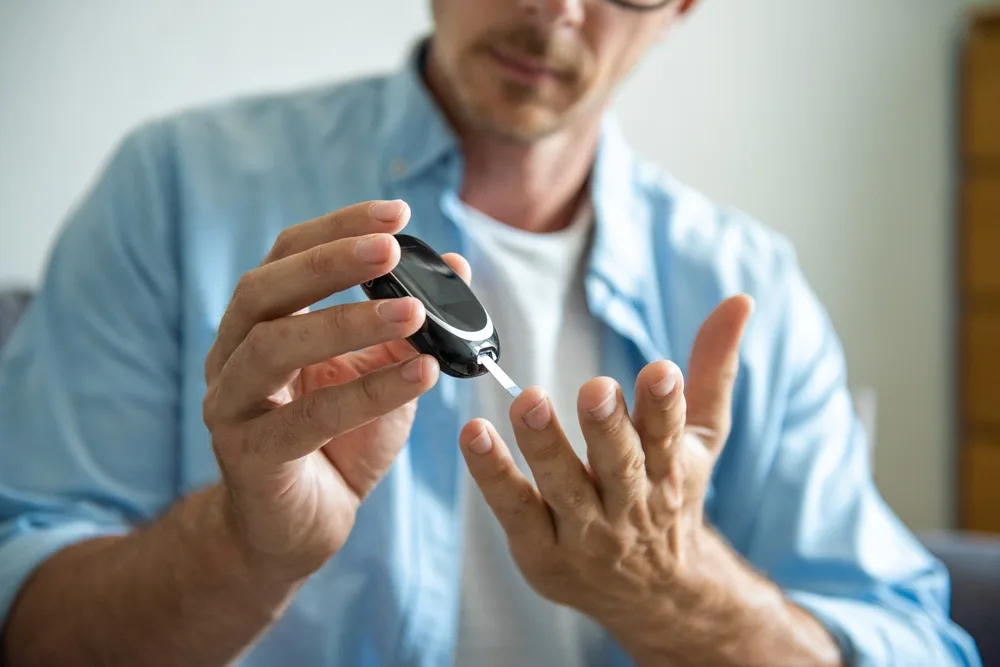
Have you noticed how our phones and computers keep us plugged in all the time, whether it’s for work, chatting with friends, or just relaxing? It’s like the lines between work time, personal time, and fun time are all mixed up because of all this tech we use every day.
Sure, it’s great to have so much info at our fingertips and to connect with people so easily, but it’s also a bit of a double-edged sword when it comes to our mental health.
It’s important to be aware of how this constant stream of information can mess with our heads a bit. This article is all about understanding how being always connected can affect our mental well-being. Keep reading to find some tips for staying happy and healthy amidst all this digital buzz.
The Psychological Impact of Information Overload
Increased Anxiety & Stress
You know how it feels when you’re trying to keep up with every new message, tweet, or update? It’s like you can’t miss anything because you might miss out on something big—yup, that’s FOMO, the fear of missing out.
This constant need to be in the loop can actually make us feel super stressed and anxious. It’s like we’re on this never-ending treadmill, always checking our phones, which just keeps the anxiety going instead of calming us down.
So, if you’ve ever felt overwhelmed by how much you’re supposed to keep track of, you’re definitely not alone. It’s a real thing, and it’s called information overload. It can be tough, but understanding what’s happening is the first step in getting a handle on it.
Impact on Attention & Cognitive Function
When we hit what’s called cognitive overload, it feels like our brains are full, and we can’t cram in even one more bit of information. Basically, our brains get more info than they can handle.
Thanks to all our gadgets, we’re always juggling a bunch of tasks at once, and that can really mess with important brain functions like remembering things, staying focused, and making decisions.
We can start to feel decision fatigue when there’s just too much going on. It’s like when you’ve made so many choices in one day that by the end, even picking what to have for dinner feels like a big decision.
Social Comparison & Depression
Have you ever noticed how everyone’s life on social media looks perfect? All those flawless photos and exciting updates can make us feel like our own lives just don’t stack up.
This is a big reason why scrolling through these platforms can sometimes make us feel pretty lousy. Studies tell us that spending too much time on social media can actually make people feel lonelier, more jealous, and even depressed, especially young folks like teenagers and young adults.
But here’s another twist: when we’re glued to our screens checking out these “perfect” lives, we’re not hanging out face-to-face with friends and family. The more time we spend soaking up info from our screens, the less time and energy we have for actual, in-person relationships. This shift can make us feel isolated, which isn’t great for our mental health.
Sleep Disturbances
Scrolling through your phone right before bed can really mess with your sleep quality. When we should be winding down, our minds are getting all revved up from whatever we’re looking at on our screens.
And it’s not just the content that keeps our brains buzzing—it’s also about the blue light these devices give off. This type of light messes with our natural sleep cycles and the production of melatonin, which is the hormone that helps us sleep. When melatonin gets thrown off, it can be tough to get good rest.
So, if you’re finding it hard to catch some z’s, maybe give yourself a break from screens before heading to bed. It could make a big difference in getting the restful sleep your body and mind really need!
Emotional Fatigue
When you’re constantly bombarded with information, especially tough and negative news, it can really wear you down emotionally. Sometimes, to cope with all this intense information, our minds sort of shut down, making us feel numb or just not caring as much. This is what experts call emotional fatigue—it’s like your emotions are just too tired to react anymore.
If this keeps going, you might start feeling really down or hopeless about things, a feeling often described as compassion fatigue. This happens a lot to people who are always tuned into distressing news or who deal with a lot of intense stuff on social media.
Being in this state not only bogs you down emotionally but can also make you feel pessimistic about life. So, if you’re feeling overwhelmed by all the news and updates, it might be time to step back and take a break for your emotional well-being. It’s totally okay to disconnect for a bit and give yourself a chance to recharge.
Strategies for Maintaining Mental Well-Being in a Hyperconnected World
Digital Detox & Setting Boundaries
One of the best ways to cut down on digital overload is to take regular breaks from all that tech. This is called a digital detox, and it can really help chill out your mind if you’re feeling swamped by too much information.
A digital detox can be as easy as turning off your gadgets during meals or maybe setting a rule that no devices are used after a certain time each night. You could even take a whole weekend off from screens every now and then to reset and refresh your brain.
Also, setting clear boundaries between work and your personal life is super important, especially if you work from home. Try to work fixed hours and have a specific spot at home where you work. This helps keep work from spilling over into your personal time, which can cut down a lot of stress and burnout.
Conscious Consumption & Prioritizing Information
Getting a handle on the endless stream of information these days can really help keep your stress levels in check. Here’s a cool tip: start by prioritizing the info that comes your way. This could mean unsubscribing from those constant email alerts that you never read anyway, choosing which emails to answer first, and being picky about the news sources you follow.
Also, think about the quality of the media you consume. Instead of just scrolling endlessly through social media, try to choose content that really adds something valuable to your day or makes you feel good. It’s all about choosing quality stuff over just anything that pops up.
Mindfulness & Meditation
Practicing mindfulness and meditation might just be the ticket to help you focus better and resist that urge to endlessly check your devices. These practices teach you how to be more aware of the present moment, which can really help calm that scattered feeling we get from too much screen time.
Mindfulness isn’t just about sitting quietly—it’s about being fully present in whatever you’re doing, whether it’s eating, walking, or even listening to music, without letting your mind wander off to your phone or other distractions.
Prioritize Regular Exercise
Getting active is one of the best ways to beat stress. Whether you’re taking a quick walk, hitting a yoga mat, or going all out in a high-intensity workout, regular physical activity can really lift your spirits and ease those feelings of depression and anxiety.
So why not make it a part of your daily routine? You might be surprised by how much a little exercise can boost your overall mood.
In-Person Connections
Sure, online chats and social media are great for keeping in touch, but nothing beats hanging out in person. Face-to-face time with friends and family lets you share real moments and have deeper conversations that just don’t happen the same way through a screen.
Make it a point to regularly connect in person—it’s a fantastic way to strengthen bonds and keep your social life enriching.
Structured Day
Having a set routine can really help manage the craziness of a hyper-connected life. Try to stick to a schedule—wake up, eat, and go to bed at the same time each day.
If you’re working from home, set clear work hours and a dedicated work area. This helps separate your professional and personal life, cutting down on stress and making your day more predictable and manageable.
Seeking Professional Help
Sometimes, the stress from being constantly connected can get overwhelming. If you’re feeling really bogged down, it might be time to talk to a professional.
Mental health experts can give you personalized strategies to handle stress and anxiety linked to digital overload. Therapy can be a great resource to help you work through the challenges and keep your mental health on track.
By Admin –







